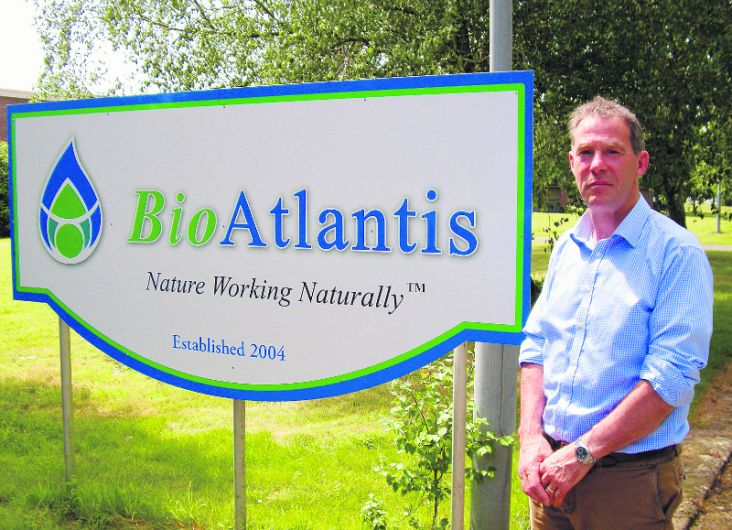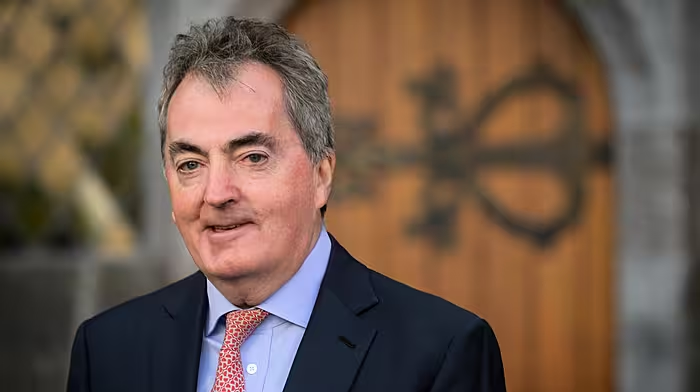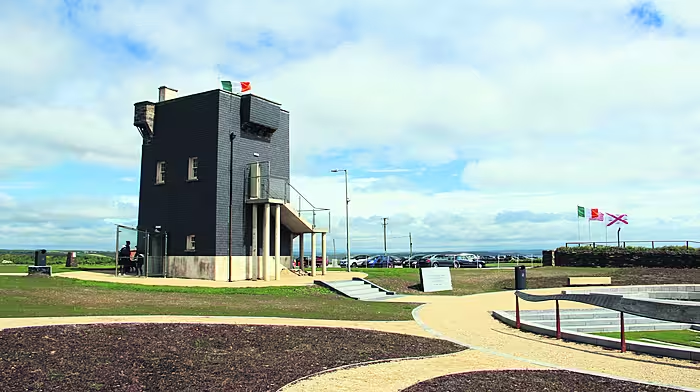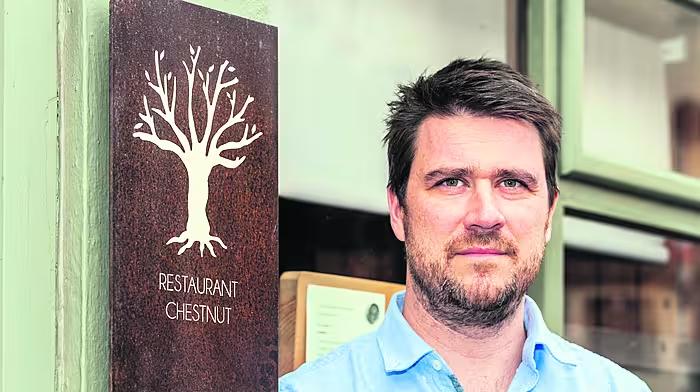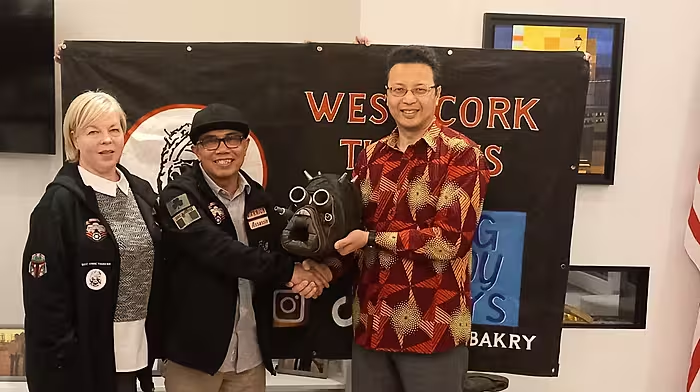John T O’Sullivan – CEO of the firm licensed to harvest kelp seaweed in Bantry Bay – is willing to meet those opposed to the licence and explain his plans, he tells Brian Moore
John T O’Sullivan – CEO of the firm licensed to harvest kelp seaweed in Bantry Bay – is willing to meet those opposed to the licence and explain his plans, he tells Brian Moore
THE boss of BioAtlantis – the firm which is proposing to mechanically harvest 1,800 acres of kelp seaweed in Bantry Bay, prompting local outrage– has said he would be happy to meet with representatives of any group to discuss his company’s controversial plans.
‘Of course I would meet with the representatives, if I am given the chance to answer the questions and to outline our plans,’ said John T O’Sullivan in an interview with The Southern Star.
BioAtlantis Ltd was set up in 2004 in Tralee, Co Kerry and today employs 62 people.
It exports its patented seaweed extracts to 35 countries around the world, where the liquids and soluble powders are used in horticulture, animal care and human nutraceutical care for people with a range of medical conditions. The company also has a facility in Kanturk in north Cork.
‘This is a natural product, of course,’ he explained. ‘We have to purify the seaweed as you have to be very careful that you don’t leave anything that could be harmful. But we add nothing to the product. Where we are trying to set a standard is to produce a product that can solve something, equally as good as a synthetic.’
The company was awarded a 10 year licence to mechanically harvest kelp in 2014, and when operations begin in Bantry Bay this will be the first time kelp has been harvested using this method within the British Isles.
At the moment the company is importing kelp from Iceland.
BioAtlantis has also commissioned a specially-designed 21m harvesting boat, which is currently in dry dock in Castletownbere.
Addressing fears that the company’s method of harvesting will destroy future kelp reserves, Mr O’Sullivan commented: ‘We are not in this for the short term. We have invested in patents and laboratories as well as 13 years in research and development, we would not have invested so much just to destroy the resource that our company is built on,’ he said.
The mechanical harvester designed by BioAtlantis is, according to Mr O’Sullivan, more beneficial to the environment in comparison to the methods used in France or Norway.
‘The French use a hook, which grabs the seaweed and pulls it to the surface. The Norwegians use a dredge, which is pulled across the seabed and everything and anything comes up with it,’ Mr O’Sullivan said. ‘While studies have shown no long term damage with either of these methods, I thought they were invasive on the surrounding environment. We have designed a cutter, or a mower, suspended at the back of our boat which cuts the kelp with the help of sonar. As the cutting takes place, the seaweed is sucked into the boat at the same time.’
The kelp will then be landed in Castletownbere where it will be transported for processing to Tralee.
While the company plans to employ three people locally, Mr O’Sullivan feels that there are opportunities for other companies in the area to benefit from the kelp harvest.
However, the plans to mechanically harvest the seaweed in Bantry Bay have raised many questions and concerns from local fishermen, as well as tourism and environmental groups, about the sustainability of the kelp crop, with many people citing hand harvesting as the only way to ensure the kelp survives and regrows annually.
‘Hand harvesting of kelp is non-existent because you have to go out in a boat and dive and so on,’ Mr O’Sullivan said. ‘There is hand harvesting of knotted wrack, but very little in the south west.
‘Storm cast seaweed is not safe from a food safety point of view, as it can contain bacteria and other contaminants. Kelp has not been used in the past, but is capable of being used in the future on a sustainable basis.
‘We wouldn’t be investing so heavily if we didn’t believe we could operate on a sustainable basis.’
When asked why his company did not engage in a public consultation process before the harvesting licence was granted, Mr O’Sullivan wondered if, having consulted with eight independent specialist bodies, including the Marine Institute, which were appointed by the government, should he have ignored the specialists in favour of a public consultation.
‘We have to be careful as to what public consultation means,’ Mr O’Sullivan said. ‘We can’t just ignore eight specialist bodies saying that in their opinion there was not a significant threat to the environment. We are selling our products with organic logos, you can’t do that and wreck the environment at the same time.’
Mr O’Sullivan went on to say because Bantry Bay is not classified as a Special Area of Conservation (SAC), an Environmental Impact Statement (EIS) was not required.
‘The Marine Licence Vetting Committee considered all material pertaining to the application and concluded that, subject to compliance with speciï¬c conditions, the proposed harvesting was not likely to have a signiï¬cant negative impact on the marine environment and that an EIS was not required,’ Mr O’Sullivan said.
‘As I have said, of course, I would meet with the representatives of any concerned group.
‘The last time there was a meeting in Bantry and I was invited I could not go because I was in Poland. But if there is a meeting and I am allowed to answer the questions, if the meeting is conducted on a proper basis, I have no issue attending,’ he promised.

